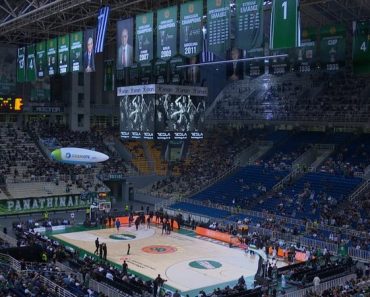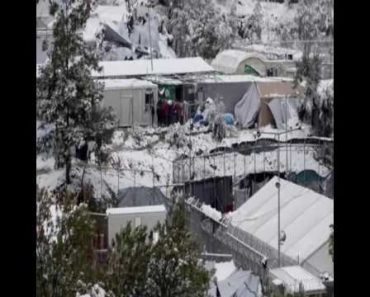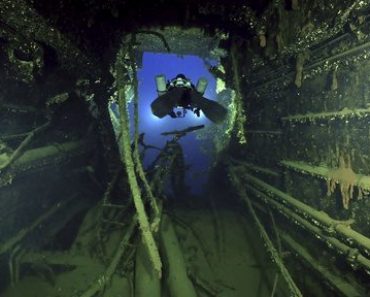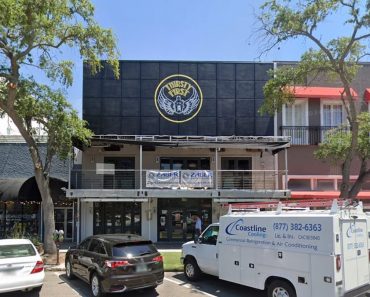
Apostolos Tsitsipas, the father of Stefanos Tsitsipas (Photo by Jason McCawley/Getty Images)
NEW YORK – Apostolos Tsitsipas feels he never really left Stefanos Tsitsipas’ side: “It’s not exactly a new chapter, it’s more like a continuation with a bit more wisdom.”
The Greek coach and father of the former world No. 3 has returned to lead his son’s team after nearly a year away from that role.
“I didn’t like that Goran (Ivanisevic) expressed his opinions publicly,” Apostolos told CLAY and RG Media in an interview in New York.
Part of the time when the 2021 Roland Garros and 2023 Australian Open finalist was not coached by his father, the Croat was in charge. In an interview during Wimbledon, Ivanisevic was blunt and direct about the Greek. “Physically he is a disaster, I cannot understand how a player of his level can be so unfit,” was one of the strongest remarks from the former world No. 2.
“It’s very hard to be around dictators and people who speak negatively and don’t feel like family,” the Greek said in a conversation in Athens, in what seemed a clear response to Ivanisevic’s comments.
The Greek coach also expressed his gratitude to Novak Djokovic for bringing his tournament to Greece. Until 2024, the Serbian’s family company, Family Sport, staged an ATP 250 in Serbia, but local media reported that political reasons prompted the relocation. The new Hellenic Championship will take place in Athens from November 2 to 8, 2025, giving the 27-year-old Greek star the chance to compete in front of his home fans.
“His intention is to play, hopefully we are healthy. For every local star it’s always inspiring to perform in front of their own people,” Apostolos confirmed.
Interview With Apostolos Tsitsipas
– What is this new chapter with Stefanos bringing to you and the family? Stefanos said the main word is “wisdom”. What are your words?
– It’s not exactly a new chapter, it’s more like a continuation with a bit more wisdom, as Stefanos said. We humans learn from our mistakes, and if we call that wisdom, then yes, we use it to upgrade things, make them better and easier. Stefanos is someone who thinks outside the box, not only in tennis but also in photography and other areas.
– Stefanos thinks outside the box. He is a very creative person, loves photography, he likes to develop himself in other aspects of life. Where does this come from?
– I think it comes from himself. Of course, we inspire our children and try to help them follow their path, maybe become creative, do what they like. But Stefanos is very individual. He has his own ideas, his own way of expressing himself, and he found through photography and creativity something that allows him to live life to the fullest, to express the full potential of his life.
– What were you doing during this time away from Stefanos’ team?
– I was okay (smiling). I had a lot of work with other Greek players, including young ones. I also have my kids, and I try to support them. We developed competition schedules, including ATP Challengers in Greece. We have organized several already to create an environment that helps Greek tennis and gives young players chances to develop.
– The ATP Tour is coming back to Greece after 31 years. How do you feel about that?
– It’s great!. Thanks to Novak, who decided to bring his event to Greece, and we agreed to host it. This collaboration is going to be very interesting and good for Greek tennis. It’s something new in the calendar.
– Of course Stefanos will play.
– Yes. His intention is to play, hopefully we are good, healthy. It will be nice. Definitely a great celebration.
– For him and for you, for this family project, how big will it be to perform in front of the home crowd?
– (smiles) It’s important. I guess it’s important. For every local star it’s always inspiring to perform in front of their own people and feel the energy of his country and the crowd. For Stefanos, it will be inspiring, and also is going to be joyful for the fans who are going to watch.
– What are the aspects you are working on with Stefanos now? What is the main focus?
– That’s a secret (laughs). Now we are in competition mode. I’m just trying to make sure he plays good tennis. The most important thing is being healthy and playing good tennis. Stefanos has a lot of potential and qualities, both as a player and a human. I want him to express them on the court. Maybe we will see the old, good Stefanos mixed with an evolution of a more mature player.
– Does his backhand need adjustments?
– Stefanos has a very specific way of playing his backhand. I just try to remind him that his backhand is unique, not the same as other single-handed players. I remind him of the fundamentals he had while developing as a player.
– What is his ceiling?
– Ceiling? (laughs) For every player, I like the answer “the sky is the limit”. Every player has to dream big and have high goals, but also be careful not to live too much in the future. They need to stay present, execute, and keep their goals in mind while being fully involved in daily work.
– How much do you agree or disagree with Ivanisevic saying that Stefanos’s physicality was a disaster?
– I wasn’t very involved then. Probably Goran saw something he didn’t like. He should have identified it at the beginning of their professional relationship with Stefanos and discussed it personally with Stefanos and his team and tell him what he wants from him. Goran is a professional, I’m sure he has his own ideas, how to make things working, but definitely he should have done it personally with Stefanos.
– Anything you didn’t like?
– I didn’t like that he expressed his opinions publicly. It’s interesting for the public to know about all these things, but the most important thing for the people is to see Stefanos playing good tennis. And the responsibility for that lies with the members of his team. We are teachers. Coaches must create the right environment for the player to develop.
– But in your opinion, how is his physicality?
– It’s good. I’m sure it can always be better, but you can’t measure these things exactly. Players have peaks, then they go a bit down. It’s not always flat. Right now, he is at his peak, I believe. He can compete here, he should be ready because it’s a Grand Slam. We did everything we could. Of course, you can always add things, but tennis is not only physical, it’s also mental.
– And how is his head?
– Mentally, he is good. That’s part of the job, too. We work to give him confidence, to make him feel ready to make decisions, give feedback to himself, and be present. That’s the mental part we must work hard on.
– Emotionally, how is he feeling after his breakup and all the stress he has been dealing with?
– He has to deal with that. Himself and every player have to deal with daily stress, routines, and pressure. If they cannot deal with that, they cannot compete at this level. They cannot be on the tour.
– Is it possible to see you collaborating with other coaches in the future, as you did with Mark Philippoussis?
– Of course. We already did it, and why not again. We always speak with Stefanos that we are thinking that we can add someone with new ideas that match our mindset. Why not? We are open.
– Any name or idea in mind?
– No, we don’t have someone at the moment. If it happens, we will let you know.
– Stefanos plays really good over the clay. Maybe is his favourite surface. Wouldn’t you consider to play in the Latin American swing in February? Is that a true possibility?
– Of course. We had many discussions this year about it. Last year he did well in Dubai, so we wondered whether to follow that path or go to clay. We haven’t decided yet. We are still processing the pros and cons. Buenos Aires, Rio, Santiago are great tournaments and great cities, but the timing right after Australia makes it complicated. Still, it’s always an option.







